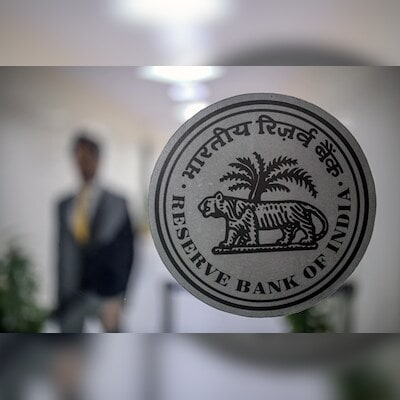[ad_1]
Indian financial system looks stronger than in the past and the country’s economy is an outlier even as strong headwinds globally, Reserve Bank of India Deputy Governor M Rajeshwar Rao said.
Delivering the J P Morgan India Leadership Series Lecture here, the RBI official also highlighted that India has achieved the highest climate change performance index (CCPI) score among G20 members in 2024, which reflects the country’s unwavering commitment to this cause.
“This also shows that by aligning economic policies with climate action, we can spur green investments, enhance energy efficiency, and foster sustainable development across the sectors,” he said in the lecture on ‘Climate Change — The Emerging Challenge’.
Rao said the global financial system is facing strong headwinds from various quarters, including high levels of public debt, stretched asset valuations, economic and financial fragmentation, geopolitical tensions, and risks arising from increasing cyber threats.
“Amidst these global challenges, the Indian economy is an outlier which shows strong macroeconomic fundamentals. Economic activity is growing steadily, supported by a financial system that looks stronger than in the past,” he said at the event held last week.
He further said the Indian banking sector, in particular, has demonstrated significant improvement in key metrics such as capital adequacy, asset quality, and profitability, supported by robust macroeconomic fundamentals and business confidence.
There has been sustained growth in credit expansion, primarily driven by personal loans and loans to services sector.
“However, despite the financial system exhibiting strong performance and healthy financials, as a regulator and supervisor, we need to remain vigilant to the risks on the horizons. We have been flagging our concerns on strong credit growth in certain segments of unsecured retail loans. Increase in use of technology has also increased threat of cyber risks,” he said.
On climate risks and the leadership challenge, Rao said from an Indian perspective, the country’s diverse topography, with snow-clad mountains, fertile plains, deserts and a long coastline with different temperature and precipitation patterns, generates diverse set of risks with attendant challenges for growth and inflation.
The agricultural sector, heavily reliant on monsoon rains, plays a critical role in India’s economy and food security. The El Nio event of 2023-24 exemplifies this vulnerability, leading to hotter summers, reduced productivity, inadequate monsoons affecting reservoir levels, and lower agricultural production.
These factors have cascading effect on inflation due to food price fluctuations, Rao said. An added element is the dependence on agriculture that has bearing on their spending patterns and resultantly impact the country’s growth.
“Climate-related events also adversely impact the credit quality and loan-repayment capabilities of the borrowers. They can wipe out the assets created from institutional finance thereby impacting health of financial institutions,” he said.
The RBI official stressed that adaptation and transition are key strategies in managing climate risks.
However, the transition must be swift, equitable and just, without putting undue burden on developing and underdeveloped economies, he said.
“We also need to address the elephant in the room, which is how to finance the transition towards a low carbon economy. Given the significant funding gaps and huge financing requirements of EMDEs (estimates range from 2.5 per cent of GDP annually in case of India and at USD 2 trillion per year by 2030 for EMDEs) access to transition finance is important,” Rao said.
He emphasised that the transition plans must be strategic and top-driven while having explicit components for geographical regions as also for industry and entity levels. Further, entities need to craft detailed plans across operations, products, services, and policies to mitigate specific risks.
Similarly, industry-specific transition plans should align with sector needs by meeting regulations, adopting relevant technologies, and collaborating with stakeholders, he said.
“By embracing the concept of “just transition” at a global level, we can chart a course towards a sustainable future — one that ensures prosperity for all while safeguarding our planet for future generations,” he said.
Economic growth pursued in a sustainable way, while treating the whole world as a family and the earth as its only habitat, can simultaneously address the challenges of climate change, the deputy governor added.
(Only the headline and picture of this report may have been reworked by the Business Standard staff; the rest of the content is auto-generated from a syndicated feed.)
First Published: Jul 25 2024 | 10:00 P.M IS
[ad_2]
Source link

